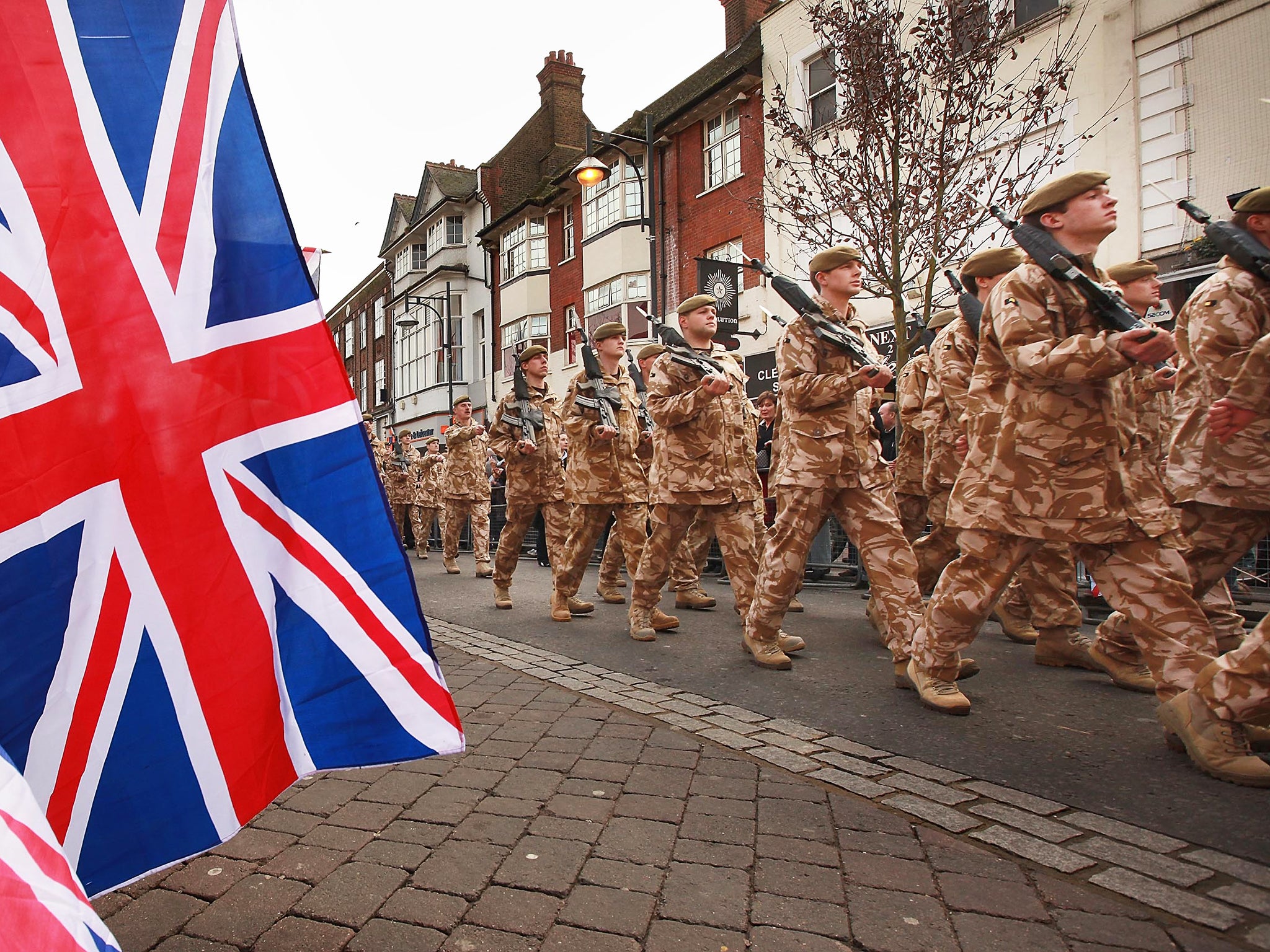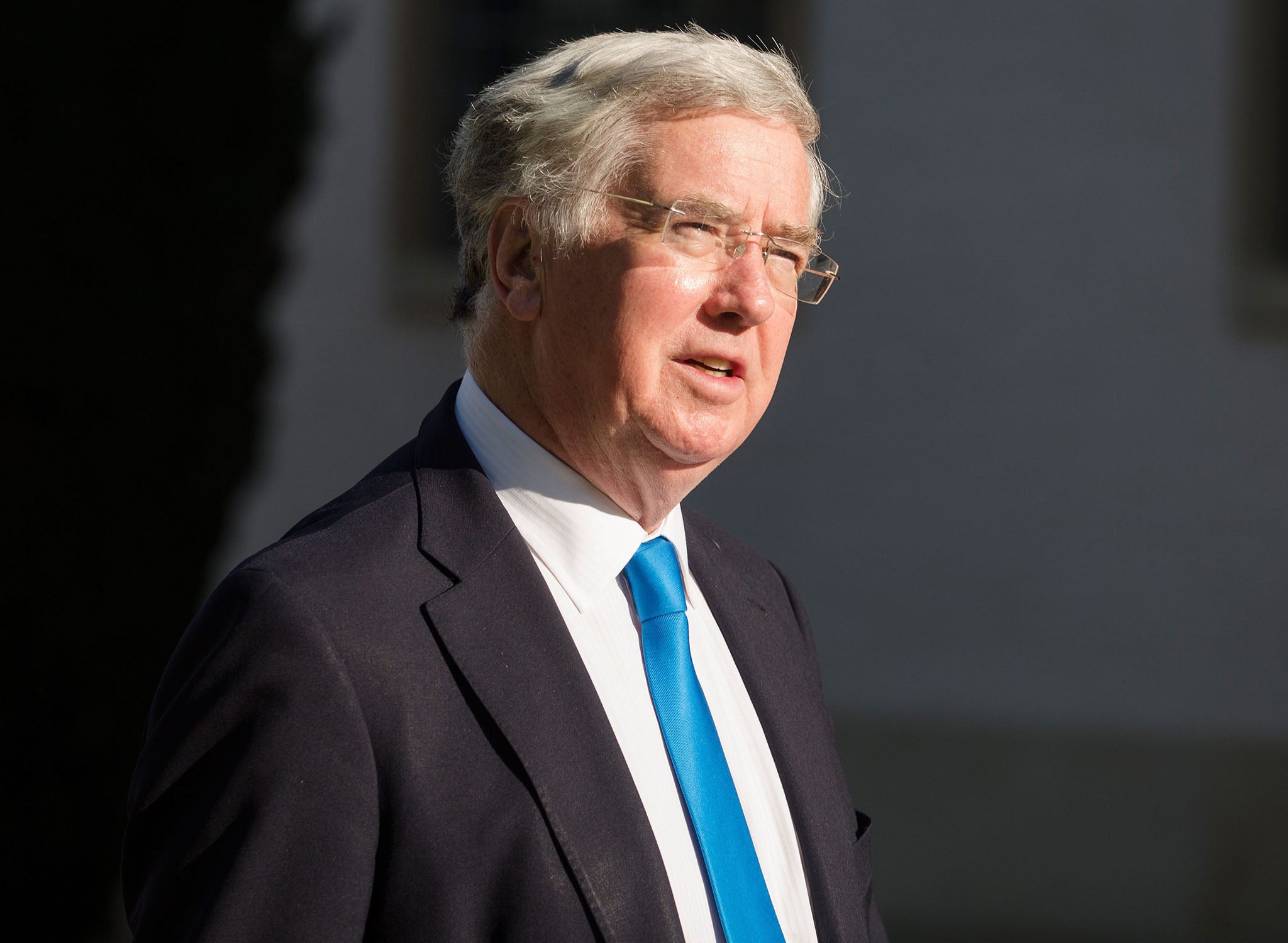EU referendum: Will Brexit make the UK more or less safe?
The big EU questions: With less than a month to go before the potentially epoch-making vote on British membership of the EU, the debate so far has been characterised by bias, distortion and exaggeration. So from now until the referendum we will be running a series of question and answer features that will explain the most important issues involved in a detailed, dispassionate way to help inform your decision

“The Prime Minister and others who constantly tell me to be afraid, talking frankly, in a soldierly way about it... they can b***er off. I will not lead my life dominated by fear.” Major General Tim Cross was speaking as a member of Veterans for Britain, a group of former senior officers who have launched a campaign for Brexit, an issue which has caused deep divisions in the military and security establishment as it has done elsewhere in British society.
What are the arguments?
Some in the military – men and women who have faced real danger, unlike the politicians – feel angered by David Cameron’s attempts to induce fear in those who want Brexit and this has hardened their support for leaving. But they also staunchly maintain that the UK’s defences will become severely weakened the longer one stays in.
On the other side there are also senior figures claiming that it is leaving the EU which would be seriously detrimental for Britain’s security. They include ex-heads of MI6 and MI5, Sir John Sawers and Jonathan Evans. Former senior military officers including Field Marshal Lord Brammall, Air Chief Marshal Lord Stirrup, Admiral Lord Boyce and General Sir Michael Rose. Their names appeared in a public letter in support of continuing membership.
That letter, however, was organised by Downing Street and, according to Major General Julian Thompson, a former commandant general of the Royal Marines and a Brexiter, some of the signatories now regret doing so. General Rose has received an apology from No 10 for including him in the list and he is now campaigning vigorously for an out vote.
There has also been intervention from overseas, among them five former Nato secretary-generals and 13 former US secretaries of state and defence secretaries, all of whom have warned that the UK leaving the EU would help the West’s enemies.
What does that mean?
The main issues in the debate fall under the broad categories of intelligence: terrorism, Vladimir Putin, the future of Nato, an “EU army” and Britain’s special relationship with the US. These are interlinked.
In what way?

Names of bogeymen have been thrown around with abandon to prove how unsafe Britain would become staying in or going out of EU. Abu Bakr al-Baghdadi is rooting for Brexit, declared Mr Cameron. One wonders whether the leader of Isis, facing offensives in Raqaa, Fallujah and Mosul really is poring over UK opinion polls. In any event, the Leave campaign is adamant that al-Baghdadi is definitely one for Remain.
But countering terrorism is a serious matter and Sir John Sawers and Jonathan Evans maintain intelligence sharing will be lost with Brexit. Sir John has previously stated: “The reason we would be less safe is that we would be unable to take part in decisions that frame the sharing of data, which is a crucial part of counter-terrorism work that we do these days.”
Michael Fallon, the Defence Secretary, has been keen to stress: “The fact is across Europe we do have these mechanisms now, sharing intelligence about terrorists’ movements, swapping data about them that enable all intelligence services across Europe to pool their efforts to try to keep a tab on them.”
But just how efficient is this intelligence sharing in the EU?
Judging by the recriminations following the attacks in France and Belgium, it is a deeply flawed system in which two countries next to each other failed to share vital information. Jean-Marie Delarue, the recently retired chief of the French government agency which oversaw intelligence surveillance, said after the Paris attacks: “We think there should be co-operation, we rely on other countries to give it to us, and I don’t think the Belgians gave us precise information.”
Intelligence sharing between the US will not be affected by Brexit, Barack Obama has assured, although he added that it would be preferable for the UK to be inside the EU to push through reforms in the intelligence sector. It should be noted that the US and Britain share intelligence with Canada, Australia and New Zealand – the Five Eyes network – without any plans to extend this to the EU.
Mr Putin has also been cited by the Remain side claiming that either leaving or staying in would embolden the Russian President into further aggression of the type he had shown in Ukraine. The Prime Minister named him as a Brexit supporter in the same sentence he mentioned al-Baghdadi and Lieutenant General Sir Richard Shirreff who has written a book saying the West is going to be at war with Russia within a year also holds that Putin really would like the UK to leave.
Major General Thompson maintains however that “the opposite is the case. The mayhem the Euro created in southern Europe gave Putin big openings to make mischief there. The European Union’s persistent efforts, led by France, to up the profile of its own defence aspirations by criticising and downplaying Nato leads to wasteful duplication of missions. It was EU diplomatic recklessness that kicked off the Ukraine crisis; and the EU’s wish to spread its influence, a latter-day form of imperialism, has weakened east European support and strengthened the hand of fascists and communists in those countries. This all helps Putin.”
What about an EU army?
The supposed creation of a EU army is a bugbear much highlighted by the Brexit campaign. This, they say, will severely weaken Nato and antagonize Washington. The Ministry of Defence has stated Britain will never join such a force, but this has been contradicted by one of its own ministers, Penny Mordaunt, a Brexit supporter, who insisted: “If we stay in the EU the Lisbon treaty gives us the worst of all worlds: powerless to prevent the EU army it paves the way for. As usual with the EU, the plan for this army would see Britain paying highest price and but getting a raw deal.”
Lieutenant General Jonathon Riley is also convinced that the “ultimate ambition of the EU is undoubtedly EU armed forces. Who would control the EU armed forces? The EU Commission? Can we seriously believe that our soldiers, sailors, airmen and marines should be sent into danger by a body over which we have no control ?”
Brexiters such as Lt Gen Riley holds that, as an organisation, only Nato can mount viable military campaigns. But, in reality, it has become increasingly difficult for the Alliance to do this by itself over a prolonged period. One of Lt Gen Riley’s last posts was deputy commander of the International Security Assistance Force (Isaf) in Afghanistan. Isaf started off as a Nato force in 2009, but grew to more than 50 contributing nations, including South Korea and Malaysia as the conflict continued over the years.
The problem becomes much more acute when the US is not that interested in a mission. David Cameron and Nicolas Sarkozy, rather than Barack Obama, were the cheerleaders for bombing to remove Muammar Gaddafi. American warplanes took part in the very early stages of air strikes before relinquishing command to Nato and taking on what was described as a “supporting role”.
But Nato was running short of precision bombs and being forced to ask the US for help less than a month into a campaign against a country with antiquated air defences. Furthermore, Britain did nothing to stabilise the country after the fall of Colonel Gadaffi as splintered into warring factions, a fact President Obama pointedly noted in a recent interview.
Being in close partnership with the US on a mission does not guarantee that Britain will have much influence, as the Iraq war demonstrated. Maj Gen Cross was appointed deputy to the retired US General Jay Garner to run the civil administration in Baghdad after the invasion. But both were displaced within months by Paul Bremer, sent as emissary by the neo-cons in Washington. The result was disastrous and played a key part in the country sliding into savage strife.
One of the worst mistakes Bremer made was to disband the Iraqi army as part of a wholesale “de-Baathification” process. Maj Gen Cross was among other senior figures warning against this act of folly. Lt Gen Riley, on the other hand, took Bremer’s line and defended the decision to break up the Iraqi armed forces when giving evidence in 2009 to the inquiry into the Iraq war.
So, the opposing sides on Brexit do not, among themselves, necessarily sing from the same hymn sheet on many important issues. What unites each side in this battle, however, is the belief that the result of the coming referendum will have an impact of massive significance for the defence of the realm.
You have
left to register
Join our commenting forum
Join thought-provoking conversations, follow other Independent readers and see their replies
Comments
Bookmark popover
Removed from bookmarks